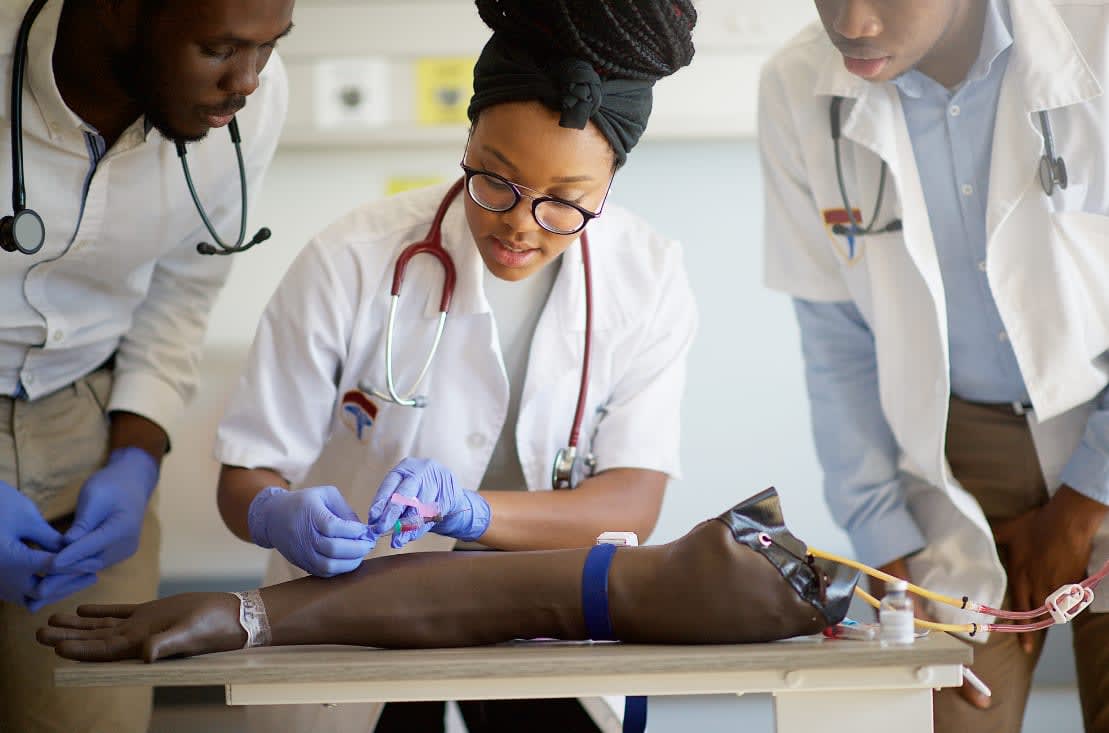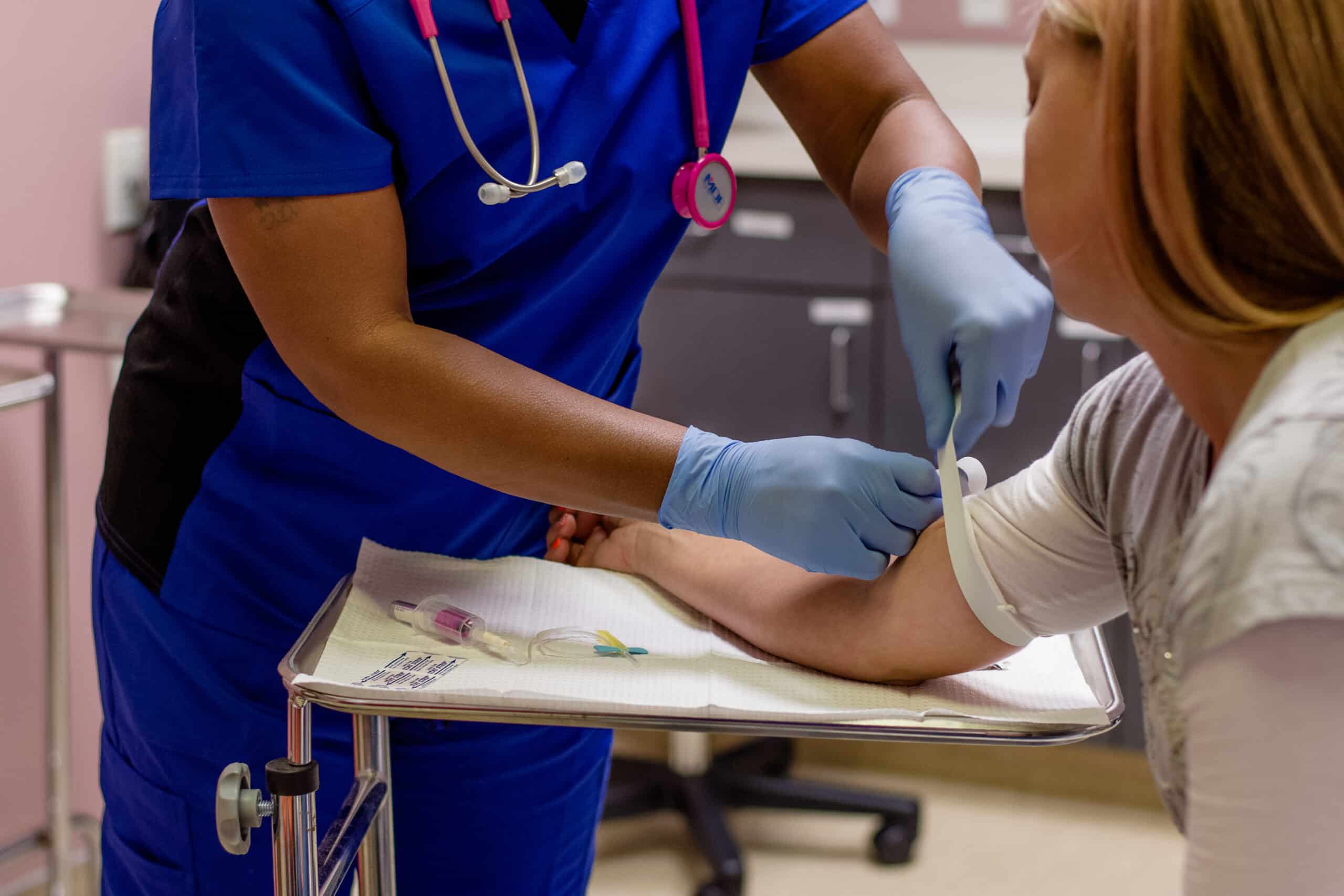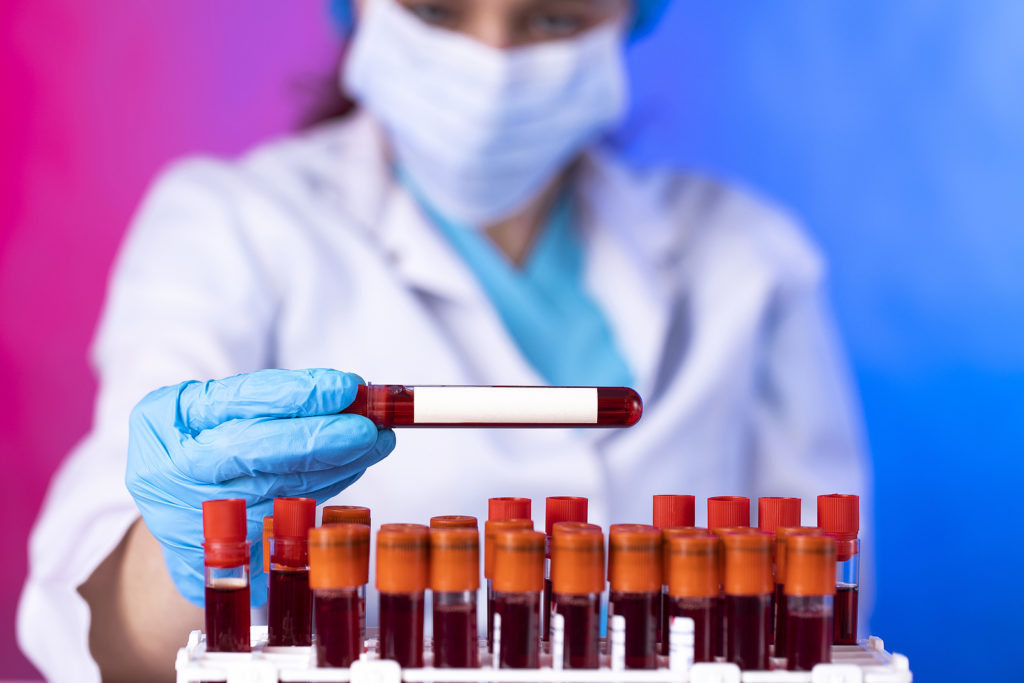Phlebotomy Classes Near Me: Part-Time Routes That Fit Your Schedule
Phlebotomy Classes Near Me: Part-Time Routes That Fit Your Schedule
Blog Article
The Course to Accreditation: Recognizing the Phlebotomy Training Training Course Journey and Its Relevance
As you take into consideration the course to accreditation in phlebotomy, it's important to recognize the duty you'll play in health care. Your training will certainly cover necessary skills, from blood collection methods to patient communication.

The Duty of Phlebotomists in Medical Care
Phlebotomists play an essential role in the medical care system, acting as the essential web link in between clients and vital analysis screening. You'll execute blood attracts, ensuring examples are accumulated properly and securely. Your proficiency helps in diagnosing clinical problems, checking wellness, and directing therapy choices.
In your everyday interactions, you'll need to develop depend on with people, making them feel comfy during what could be a difficult experience. You are accountable for labeling and handling samples thoroughly to stop contamination or errors, which might affect test results.
Yet, you'll usually function alongside physicians and nurses, connecting important information concerning patients' conditions. Your duty is fundamental in preserving the operations in healthcare settings, making certain timely and precise outcomes. By mastering your skills, you add meaningfully to individual treatment, making you a vital component of the medical group. Welcoming this duty is essential to your success as a phlebotomist.
Introduction of Phlebotomy Training Programs
When discovering phlebotomy training programs, you'll find different kinds designed to fit different routines and finding out designs. Each program helps you develop necessary abilities like blood collection and client communication. Understanding these choices is vital to picking the best course for your job.
Kinds Of Educating Programs
A number of kinds of training programs are offered for those looking to become skillful in phlebotomy. Furthermore, some medical facilities and facilities provide on-the-job training programs, providing functional experience while you learn. Whatever path you pick, each program aims to outfit you with the required abilities for a successful phlebotomy job.

Secret Abilities Developed
Grasping phlebotomy calls for a set of crucial abilities that are developed with thorough training programs. You'll discover technological skills like appropriate blood vessel selection, needle insertion, and blood collection methods. These hands-on techniques guarantee you can carry out treatments safely and successfully. In addition, communication skills are basic; you'll need to interact with individuals, discuss treatments, and placed them at ease. Recognizing anatomy and physiology is critical, also, as it helps you situate veins and understand the body's action to blood attracts. You'll obtain expertise of safety and security methods and infection control, guaranteeing you preserve a sterilized environment. Each of these skills is important for your success as a certified phlebotomist, making you a valuable property in any kind of health care setting.
Secret Parts of a Phlebotomy Program
In a phlebotomy program, you'll focus on important topics that lay the groundwork for your future job. You'll involve in hands-on training that allows you to use what you have actually discovered in real-world settings. Both the curriculum and sensible experience are crucial for your success as a phlebotomist.
Curriculum Review
While seeking a phlebotomy training course, you'll run into a curriculum created to equip you with basic abilities and understanding. Phlebotomy Classes Near Me. This educational program usually includes makeup and physiology, focusing on the circulatory system and recognizing blood elements. You'll also discover different kinds of blood collection methods, consisting of venipuncture and capillary puncture techniques
Additionally, infection control and security procedures are important elements, ensuring you know how to maintain a sterilized environment. You'll research patient interaction, stressing interaction and empathy, which are important for reducing patient anxiety. Ultimately, ethical and lawful considerations will be resolved, preparing you for real-world duties. This foundational expertise will certainly enable you to stand out as a phlebotomist and provide top quality care in clinical setups.
Hands-On Training Experience
Obtaining hands-on experience is an indispensable part of your phlebotomy training program. This practical training permits you to use what you've discovered in a real-world setup, boosting your skills and confidence. Phlebotomy Training Course.
Furthermore, you'll get the opportunity to connect with people, which is essential for creating your interaction skills. This combination of technological effectiveness and interpersonal abilities is essential for your success as a licensed phlebotomist. Inevitably, hands-on training is where theory fulfills practice, strengthening your knowledge and readiness for certification.
Accreditation and Licensing Needs
Before you can begin your career in phlebotomy, it is crucial to recognize the accreditation and licensing needs that vary by state. A lot of states require phlebotomists to hold an accreditation from a recognized organization, such as the National Phlebotomy Organization or the American Society for Scientific Pathology. These certifications normally involve passing an examination that examines your understanding and skills in the field.
Along with qualification, some states have particular licensing needs. You might need to finish a certain variety of hours in clinical technique, submit proof of training, or undertake a background check. It is essential to research your state's laws to make sure you satisfy all necessary standards.
Staying notified about these demands not just helps you safeguard a position however additionally enhances your credibility as an expert. By meeting these demands, you'll be well on your means to a successful profession in phlebotomy.
Hands-On Training and Practical Experience
Hands-on training and functional experience are important elements of your phlebotomy education, as they enable you to apply theoretical expertise in real-world situations. During your training, you'll take part in supervised venipuncture, discover correct techniques, and end up being acquainted with numerous blood collection equipment. This direct involvement is important for constructing your self-confidence and honing your skills.
You'll work closely with knowledgeable experts that can assist you via the nuances of patient communication and example handling. Each technique session not just enhances your understanding yet additionally prepares you for the busy setting of medical care setups.
In addition, lots of programs include scientific rotations, allowing you to experience varied Phlebotomy Courses Near Me setups, from hospitals to outpatient centers. This exposure helps you adjust to different obstacles and person requirements, ensuring you're well-prepared for your future role. Embrace these possibilities, as they're vital to ending up being an experienced and caring phlebotomist.
Challenges Encountered During Training
While obtaining hands-on experience is important, it's crucial to recognize the difficulties that can develop throughout your phlebotomy training. Additionally, grasping the abilities needed for blood draws takes method; you might battle with strategy initially.
Time administration can additionally be a difficulty, as balancing theory, functional sessions, and individual dedications can feel intimidating. You may deal with differing finding out paces among your peers, causing sensations of self-doubt if you believe you're dropping behind. Adapting to the various individualities of teachers can be challenging, as each may have an unique mentor design.
Recognizing these obstacles early can prepare you for success and assist you establish strength throughout your training trip.
Occupation Opportunities After Qualification

As you obtain experience, you may also think about focusing on locations like pediatric or geriatric phlebotomy, dealing with details client needs. Some phlebotomists pick to progress their professions by coming to be research laboratory service technicians or going after further education and learning in healthcare areas.
Additionally, your qualification can cause roles in training or monitoring brand-new phlebotomists, enabling you to share your expertise. With the health care sector continuously growing, your skills will certainly always remain in demand, leading the way for a secure and fulfilling occupation. Embrace the chances waiting for you!
Often Asked Questions
What Is the Normal Duration of a Phlebotomy Training Course?
Phlebotomy training programs generally last around 4 to eight weeks. You'll involve in hands-on method, class direction, and online knowing. Finishing this training prepares you for accreditation and a rewarding occupation in healthcare.
Are Online Phlebotomy Courses Available?
Yes, online phlebotomy training courses are available. They supply flexibility and convenience, permitting you to study at your very own speed. Simply confirm the program is accredited to fulfill accreditation needs and obtain important skills for your occupation.
Just How Much Does Phlebotomy Training Typically Expense?
Phlebotomy training usually costs in between $700 and $2,500, depending upon the program and place. You ought to take into consideration aspects like course size, included materials, and hands-on experience when picking the ideal training for you.
What Prevail Prerequisites for Phlebotomy Training?
Typical prerequisites for phlebotomy training usually include a high school diploma or GED, immunizations, and a history check. Some programs might also require standard healthcare expertise or certifications, guaranteeing you're planned for hands-on training.
Can I Work While Finishing My Phlebotomy Training?
Yes, you can work while finishing your phlebotomy training. Numerous trainees equilibrium jobs with their research studies, yet make specific to handle your time effectively to guarantee you meet both job and training commitments effectively.
Report this page